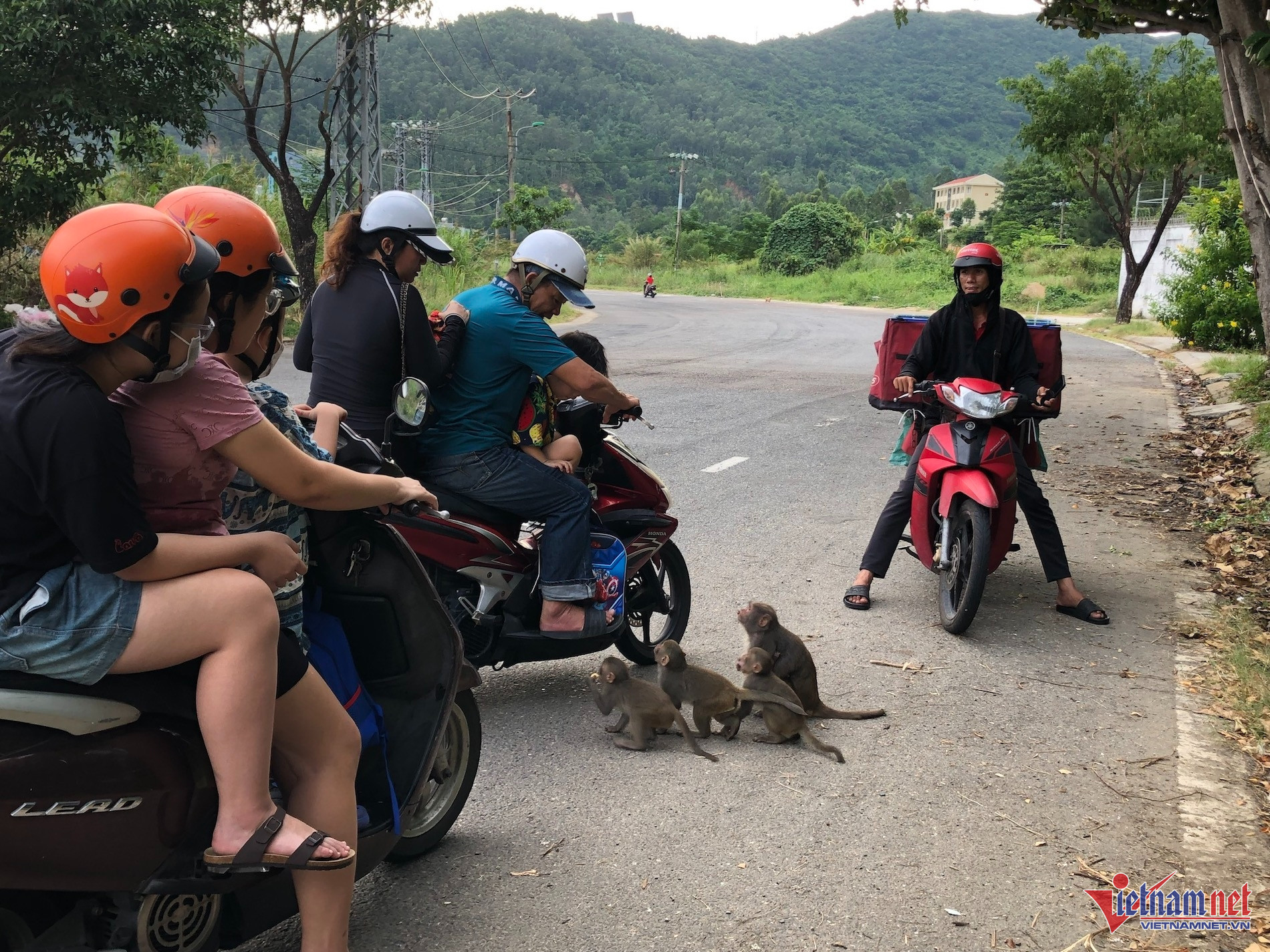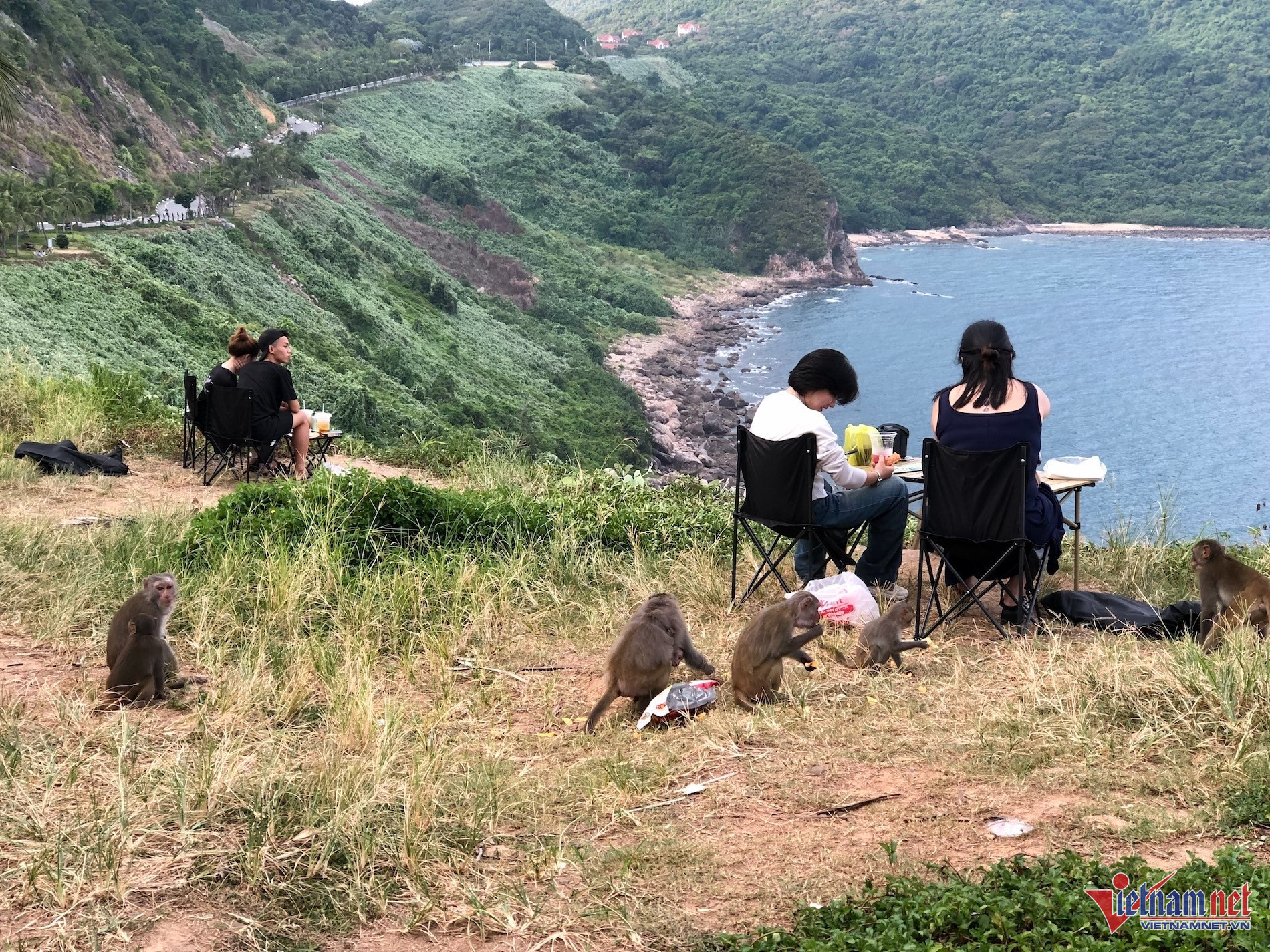Travelers along Le Van Luong Street and Hoang Sa Street, which lead to the Son Tra Peninsula, report frequent encounters with monkeys, particularly around 7 a.m. and 4 p.m. These animals, once wary of human interaction, now boldly approach people, often in groups, to snatch food or even cling to individuals to demand snacks.
Visitors like Sang and Loan from Da Nang have expressed their distress over such encounters. "As soon as we started to eat, a monkey grabbed our snacks. I had to clutch my bag tightly to prevent further thefts," Sang recounted, highlighting the distress these interactions can cause.
Nguyen Long, a tourist from Nghe An, shared a similar experience, noting that a monkey made multiple attempts to steal from him and showed aggressive behavior when confronted.
Cao Thi Kim Tuyet, a volunteer regularly working at Son Tra, explained that the problematic behavior stems from prolonged human feeding, which has altered the monkeys' natural foraging habits. "These monkeys have grown accustomed to receiving food from humans, which is dangerous not only for people but also for the animals themselves," she stated.
Phan Minh Hai, Deputy Head of the Management Board of Son Tra Peninsula and Da Nang Tourist Beaches, acknowledged that this issue has been prevalent since around 2020, primarily due to tourists feeding the monkeys for entertainment. Despite efforts to curb this practice, recent months have seen a resurgence of such behavior, leading to renewed concerns.
In response to the ongoing issue, the Management Board is intensifying efforts to educate the public and monitor the area more rigorously. This includes deploying staff to patrol key areas during peak times and weekends and considering the installation of surveillance cameras to oversee and manage wildlife interactions more effectively.
Additionally, there are plans to expand public awareness campaigns and engage with tourism operators to discourage feeding and promote responsible wildlife viewing practices. However, as Hai pointed out, current regulations do not permit fining individuals for feeding wildlife, which complicates enforcement efforts.
The situation at Son Tra calls for a comprehensive approach that includes research by zoological experts to better understand the behavioral dynamics of the local monkey population and to develop effective, humane strategies to manage and mitigate human-wildlife conflicts.
The ongoing challenges at Son Tra Peninsula underscore the delicate balance required to manage wildlife interactions in tourist-heavy regions and the need for continued vigilance and adaptive management strategies to ensure the safety of both humans and animals.



 |
 |

Dieu Thuy